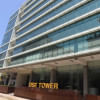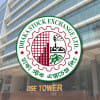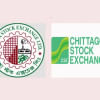Key index rises 500 points in a month

The benchmark index of the Dhaka Stock Exchange (DSE), the premier bourse in Bangladesh, rose 500 points in the past month after a change in the political landscape brought on by the ouster of the Awami League government.
The benchmark index of the DSE, the DSEX, stood at 5,229.26 points on August 4, the day before former prime Sheikh Hasina resigned from her post and fled the country in the face of a mass uprising.
One month since, the DSEX has risen by half a thousand points, hitting 5,728.64 yesterday.
Turnover, which was only Tk 207 crore on August 4, stood at Tk 674 crore yesterday.
On August 11, turnover hit a two-year high of Tk 2,010 crore.
The interim government, led by Nobel Laureate Muhammad Yunus, has been swift in moving to revive the ailing economy of the country, where consumers have been struggling with persistent price hikes.
Inflation hit 11.66 percent in July this year, the highest at least since 2010-11, while food inflation soared to 14.1 percent.
As a part of its reforms, the interim government appointed new chairmen and directors to the Bangladesh Securities and Exchange Commission (BSEC) and Dhaka Stock Exchange (DSE).
Khondoker Rashed Maqsood, the new chairman of the BSEC, took a raft of measures.
Under his oversight, the commission raised the lower limit of the circuit breaker from 3 percent to 10 percent, gave directives to investigate irregularities that occurred over the past 15 years, and retracted floor prices for some companies.
Decisions were also made to freeze the beneficiary owner's accounts of some stock market bigwigs while measures are being taken against companies that did not declare dividends for the past few years.
Such moves provided the indication that good governance would soon be restored to the sector, rallying investor confidence.
Asif Khan, chairman of EDGE Asset Management Limited, said the expectation of the people was reflected in the stock market after the regime change.
Citing that the economic team of the interim government comprises noted economists like Chief Adviser Yunus, Wahiduddin Mahmud, Salehuddin Ahmed and Ahsan H Mansur, Khan said he had not seen a team as strong as this before.
"The governance in the financial sector, especially the share market, will be improved, and economic management will also be better under the new system," Khan said.
"The stock market has been down for the past two and half years. The prices of fundamentally good shares decreased. When a bit of optimism emerges in the market, the prices of these shares rebound quickly."
Saiful Islam, president of the DSE Brokers Association of Bangladesh, echoed Khan's sentiments, adding that uncertainties in the market had complicated matters for the last few years.
"Nobody expected that the government would change. But the government has changed. So, expectations were heightened after the change of the government," he said.
Islam said that it was expected that investor confidence would be boosted after the general elections in January.
"But that did not happen as the market continued to be dealt with in the same manner. So, investors did not get impetus from the market."

 For all latest news, follow The Daily Star's Google News channel.
For all latest news, follow The Daily Star's Google News channel. 







Comments